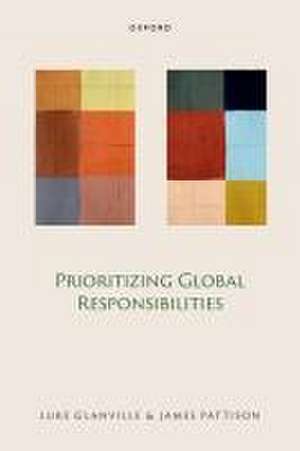Prioritizing Global Responsibilities
Autor Luke Glanville, James Pattisonen Limba Engleză Hardback – 4 iul 2024
Preț: 473.71 lei
Preț vechi: 654.85 lei
-28% Nou
Puncte Express: 711
Preț estimativ în valută:
90.64€ • 94.64$ • 75.02£
90.64€ • 94.64$ • 75.02£
Carte disponibilă
Livrare economică 03-10 martie
Preluare comenzi: 021 569.72.76
Specificații
ISBN-13: 9780198892335
ISBN-10: 0198892330
Pagini: 224
Dimensiuni: 160 x 240 x 18 mm
Greutate: 0.5 kg
Editura: OUP OXFORD
Colecția OUP Oxford
Locul publicării:Oxford, United Kingdom
ISBN-10: 0198892330
Pagini: 224
Dimensiuni: 160 x 240 x 18 mm
Greutate: 0.5 kg
Editura: OUP OXFORD
Colecția OUP Oxford
Locul publicării:Oxford, United Kingdom
Notă biografică
Luke Glanville is Professor of International Relations at the Australian National University. He is the author of several books including Sharing Responsibility: The History and Future of Protection from Atrocities (Princeton University Press, 2021) and Sovereignty and the Responsibility to Protect: A New History (University of Chicago Press, 2014).James Pattison is Professor of Politics at the University of Manchester. His publications include The Alternatives to War: From Sanctions to Nonviolence (OUP, 2018), The Morality of Private War: The Challenge of Private Military and Security Companies (OUP, 2014), and Humanitarian Intervention and the Responsibility to Protect: Who Should Intervene? (OUP, 2012).
